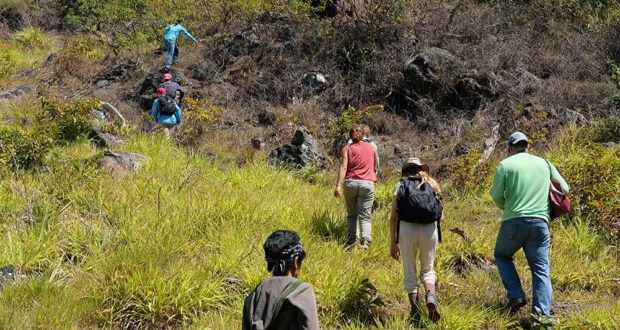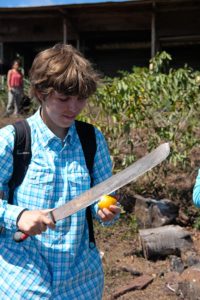The machete passed from hand to hand, but always seemed to end up with Elena. Brandishing it ninja style, she hacked mercilessly at the blackberry thickets. If there wasn’t something that needed hacking, she simply hacked the nearest stump as if it had offended her.
When we began climbing a steep, brushy hill to one of the island’s summits, she was on point, blazing the trail – until she met her match in a long stretch of tangled shrubs and vines. While the group lingered, she flailed away at the brush. After a time, someone suggested heading back down. She was having none of it and simply picked up the pace of her assault. Her problem was a matter of physics: the pitted and rusted machete had no edge to speak of, and the flexible brush simply bowed rather than breaking under her blows.
Even halfway up the hill, the view was spectacular. The hazy coast touched the sea on the left, while a luscious carpet of forest rose up the the hills to the right. After about 15 minutes, though, there was nothing more to see and Elena was making little progress, so I slowly made my way back down the path. When I got to the bottom, one of the researchers waved from above. I sat down against a log in the shade and pulled my hat over my eyes. After a time, one by one the rest of the group gave up and turned around. Elena followed reluctantly, the machete dangling loosely at her side.
We found other, more productive uses for the blade – stripping the rind off the oranges growing wild in the countryside. They were once part of an orchard of oranges and guava but were long ago abandoned by the farmers that cultivated them. Picking plants and flowers on the island is generally forbidden, but the fruit is regarded as an invasive species. Their taste was sweet, and we ate all we wanted.

